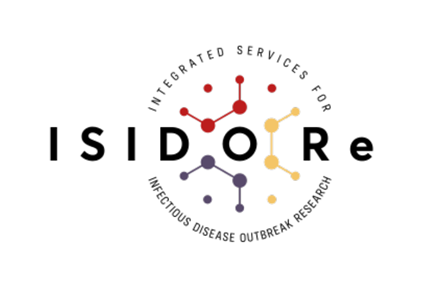ISIDORe - Integrated Services for Infectious Disease Outbreak Research
Project ID
101046113 (HORIZON-INFRA-2021-EMERGENCY-02)
Project title
Integrated Services for Infectious Disease Outbreak Research
Project manager, contact details
Bernadett Barnaki, barnaki.bernadett@pte.hu
Academic supervisor, contact details
Prof. Dr. Gábor L. Kovács, kovacs.l.gabor@pte.hu
Total project budget
20.998.624 EUR
Total budget of UP
6.250 EUR
Project start date
Project end date
Coordinator
European Research Infrastructure on Highly Pathogenic Agents (BE)


Partner Organisations
University of Pecs (HU) +154 partners
General description
ISIDORe is funded by the European Union under Horizon Europe (Grant #101046133). With 154 partners from 32 countries worldwide, the ISIDORe consortium proposes to assemble the largest and most diverse research and service providing instrument to study infectious diseases in Europe, from structural biology to clinical trials.
ISIDORe’s two overarching goals are:
1. contributing to fighting the rise of the SARS-CoV-2 variants through a global, integrated and challenge-driven approach by providing fast access to cutting-edge resources and services to scientific user communities for supporting the evidence-based development or adaptation of countermeasures in times of emergency,
2. contributing to Europe’s readiness to any epidemic-prone pathogen through a global, integrated and preparedness-driven approach by providing access to cutting-edge resources and services to scientific user communities for supporting their research projects in the field of infectious diseases in “peaceful times” as well as during epidemics.
These goals will be achieved through specific objectives:
● Assembling a One Health-driven, comprehensive, integrated, customised, flexible and high-quality portfolio of services that supports user projects related to both the challenge-driven and preparedness-driven approaches
● Providing access to the full range of our services in a user-friendly and efficient manner
● Enabling by means of scientific services the development or adaptation of prevention and intervention
● Enabling further research by dissemination of the results of user projects through the use of global standards, relevant data platforms and registries, according to FAIR principles and the GDPR.
● Expanding and constantly improving our portfolio of services
● Aligning the activities of our project with overarching strategies for pandemic management and preparedness to better support research on epidemic-prone pathogens and face epidemics
The expected outcomes of the project include:
1. Comprehensive catalogue of RI services relevant to tackle infectious diseases epidemics is available, including services supporting pertinent social sciences research;
2. Fast assembly and provision of innovative, customised and efficient RI services to support research linked to detecting, assessing and combatting newly emerging SARS-CoV-2 variants;
3. Challenge-driven integration of RI to better support research addressing infectious diseases and face epidemics, including for use by epidemics risk assessment and risk management bodies (such as the ECDC, the WHO, the OIE and national epidemics management bodies);
4. Rapid response to epidemics outbreaks through RI services underpinning and supporting research aiming to understand causes and development of the epidemic;
5. Development of novel/adapted epidemics intervention tools and measures enabled by relevant RI services;
6. Availability of research data emerging from access provision activities for re-use on common data platforms and registries, according to FAIR principles and compliant with legal provisions under the GDPR.
Program
Horizon Europe
Application monitoring
